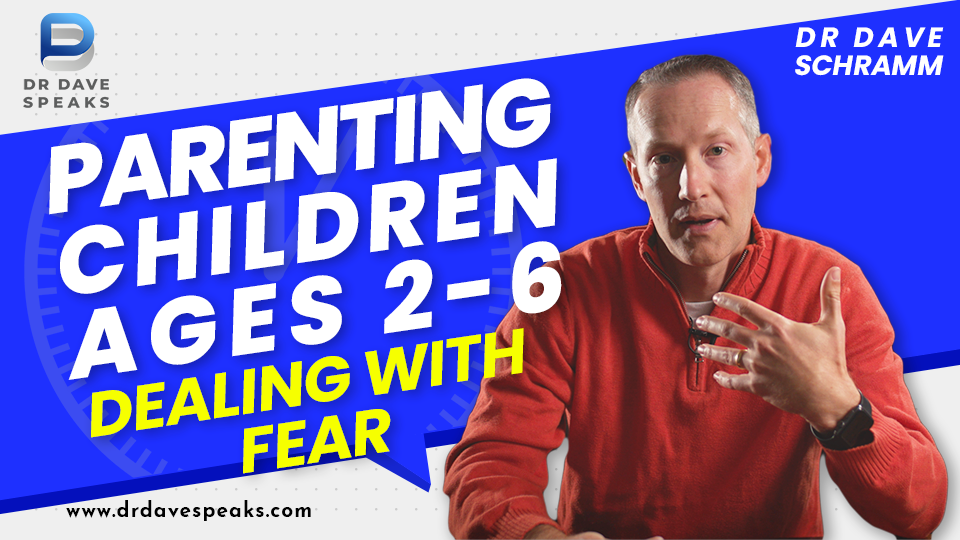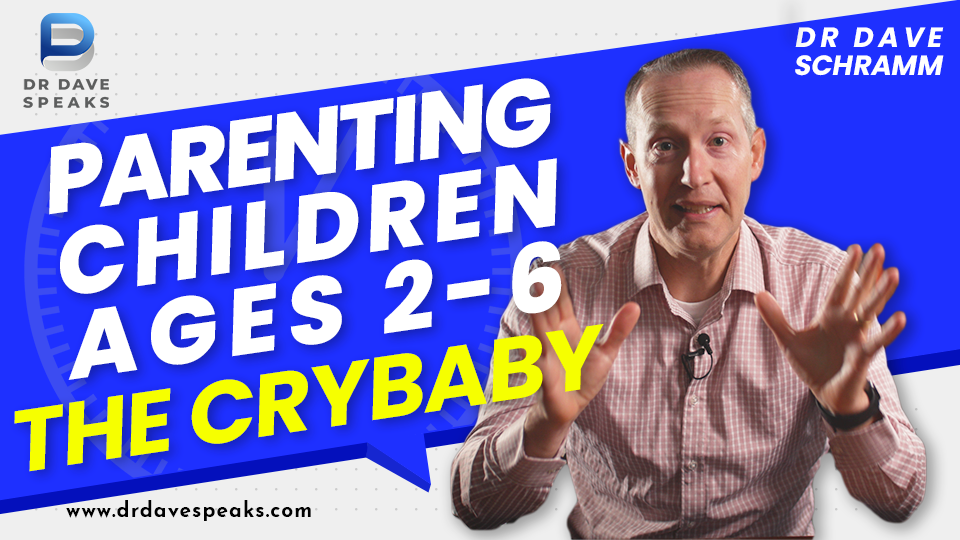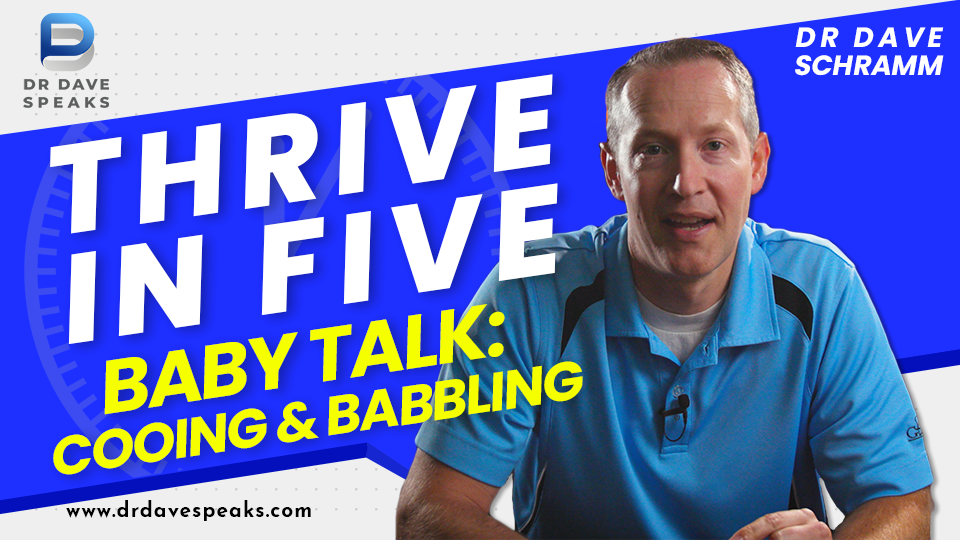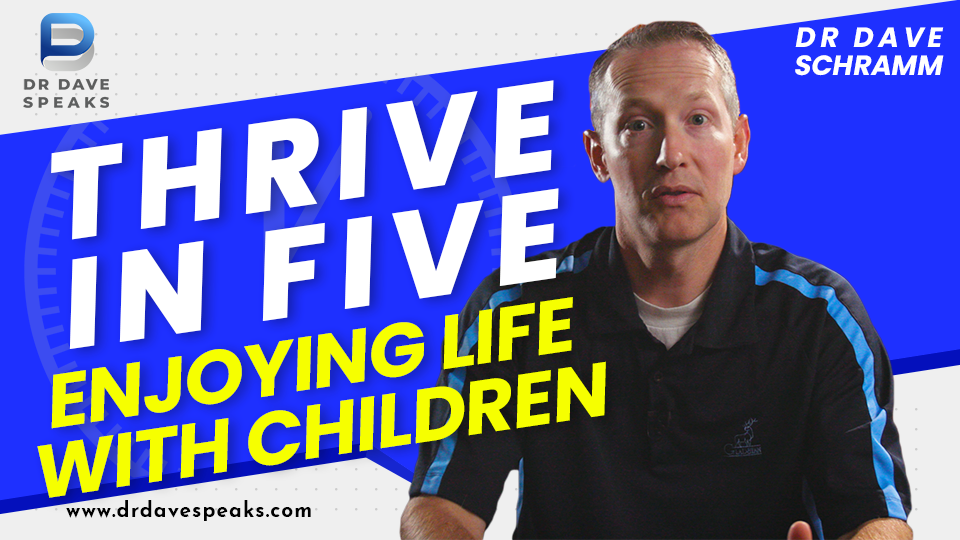Search the blog data base by keyword or topic:

5 Easy Ways to Make Reading Fun & Effective for Kids Ages 2–6
Did you know reading together builds more than just literacy—it strengthens your child’s brain and bonds too? Dr. Dave Schramm offers five simple strategies: invite your child to participate, bring stories to life with fun voices and actions, embrace favorite books, explore libraries and cozy reading spaces, and make reading a daily habit. It’s a joyful way to grow connection and learning.

When My Child Hits: Gentle Strategies for Ages 2–6
It’s common—and totally normal—for children ages 2–6 to hit when emotions run high. Dr. Dave Schramm walks parents through five thoughtful steps: see the situation from your child’s perspective, prevent triggers, act without shaming, help them calm down, and gently teach kindness. With grace and good boundaries, even tough moments become opportunities for connection and growth.
Consider this, how we respond rather than react will make all the difference.
1. Look at things from your child’s point of view and remember that it’s a process to learn better behaviors;
2. Prevent problems when possible;
3. Take action without insult;
4. Help your child calm down and feel safe; and
5. Teach and show your child how to be kind.

The Power of Play for Kids Ages 2–6: Simple Ways to Connect and Grow
Even a few minutes of play with your child can be transformative. In this post, Dr. Dave Schramm shares quick, heart-building ideas—like making time to play undistracted, inviting your child to help with small tasks, and suggesting fun, shared activities. These moments foster connection, teach social skills, and lay the foundation for meaningful relationships.

Using the Parenting Pyramid: Build Connection Before Teaching & Correction
Rather than defaulting to discipline, the Parenting Pyramid encourages us to ask: 'How can I help things go right?' Dr. Dave Schramm explains how effective parenting builds from the bottom up—starting with personal well-being, through couple and parent–child connection, then teaching, and finally correction. When our relationships and teaching are strong, correction becomes a natural extension, not the centerpiece.

Potty Training Tips for Kids Ages 2–6: Gentle, Effective Strategies for Parents
Potty training is a major milestone—and it doesn’t have to be stressful. In this post, Dr. Dave Schramm offers gentle, practical tips for kids ages 2–6: look for readiness signs, establish a positive potty routine, use encouraging language, and celebrate small wins. With empathy and consistency, you can guide your child toward independence and make the journey smoother for both of you.

Mirroring Children’s Emotions: How Emotional Reflection Builds Connection and Calm
When your child is overwhelmed by emotions, logic won’t help. In this post, Dr. Dave Schramm explains how ‘holding up an emotional mirror’—reflecting back what your child is feeling—validates their experience and soothes their nervous system. Backed by expert insights from Gottman and others, he shows how empathy and emotional labeling become the foundation for connection, calm, and emotional intelligence.

Navigating the ‘No’ Phase: Gentle Parenting Strategies for Ages 2–6
Frustrated by toddler “no” after “no”? In this post, Dr. Dave Schramm reframes this resistance as a bid for independence, not defiance. He offers empathetic strategies—like validating feelings, offering safe choices (“Carrots or grapes?”), and engaging playful problem-solving—to preserve connection while guiding behavior. With patience and creativity, the “tug-of-war” can become a bridge to cooperation, not conflict.

Surviving the ‘My Way’ Phase: Nurturing Independence in Kids Ages 2–6
Around age two, toddlers begin asserting autonomy with phrases like ‘I can do it myself!’ While this growing independence can feel exhausting for parents, it’s a sign of healthy development. Dr. Dave Schramm offers practical tips to support your child’s self-expression while maintaining connection—making this bold, boundary-testing phase a chance to strengthen trust and confidence.

Helping Children Ages 2–6 Overcome Fear: Empathy-Driven Strategies That Work
All children experience fear—and it's completely normal. In this post, Dr. Dave Schramm provides compassionate, age-appropriate guidance: see the world through your child’s eyes, listen without judgment, help them feel safe, and offer creative coping tools like a gentle “monster spray” or playful visualization. These nurturing responses help children manage their emotions and build confidence.

Parenting the Crying Toddler: Calm Strategies for Ages 2–6
Babies crying a lot can feel overwhelming—but it's totally normal. In this post, Dr. Dave Schramm reassures parents that crying is your child's way of asking for help, not a sign of failure. He shares practical, compassionate tips—from comforting techniques to simple troubleshooting—that nurture secure attachment and calm the chaos in early parenting.

Helping Babies Learn to Talk: 5 Key Ways to Support Cooing & Babbling | Part 1
Babies aren’t just making cute noises—they’re actively trying to talk. Dr. Dave shares five simple yet powerful ways to support your baby’s early communication—like making eye contact, turning distractions down, and engaging in gentle back-and-forth cooing. These little interactions send rich signals in your child’s developing brain and lay the foundation for lifelong connection and language development.

Enjoying Life with Young Children: 3 Simple Tips to Connect & Thrive
In this uplifting post, Dr. Dave Schramm reminds parents that time truly is love—especially with young children. He outlines three practical tips to help young families thrive: organize your life around your child, learn together, and celebrate each small step. With a reminder to unplug and engage fully, this post invites parents to cherish the everyday joys that shape childhood

Parenting Children Ages 2 - 6: Introduction
In this insightful introduction to the "Parenting Children Ages 2–6" series, Dr. Dave Schramm emphasizes the importance of viewing the world from your child's perspective. Drawing inspiration from Dr. Wally Goddard's "See the World Through My Eyes" resources, this post offers practical tips to navigate the unique challenges of parenting toddlers and preschoolers, fostering patience and deeper connection.
